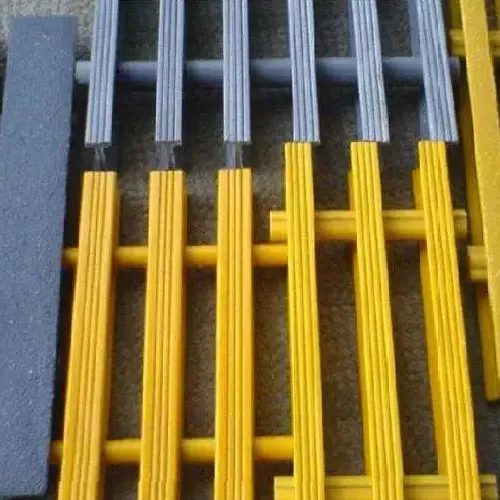loading...
- No. 9, Xingyuan South Street, Dongwaihuan Road, Zaoqiang County, Hengshui, Hebei, China
- admin@zjcomposites.com
- +86 15097380338
- Welcome to visit our website!
Design and Optimization of FRP Vessels for Enhanced Performance and Durability
The Advantages of FRP Vessels for Chemical Storage
As industries continue to evolve, the demand for materials that can withstand harsh environments while offering durability and low maintenance is rising. One such material that has gained significant traction is Fiberglass Reinforced Plastic (FRP). FRP vessels, particularly in the context of chemical storage, present a unique combination of strength, resistance to corrosion, and versatility. This article explores the advantages of using FRP vessels in various industrial applications.
What is FRP?
Fiberglass Reinforced Plastic is a composite material made from a polymer matrix reinforced with fibers, usually glass. This combination results in a material that is both lightweight and robust, making it suitable for numerous applications, including the construction of storage vessels. The inherent characteristics of FRP, such as its resistance to corrosion, chemical stability, and structural integrity, make it an ideal choice for storing a wide array of chemicals.
Corrosion Resistance
One of the most compelling advantages of FRP vessels is their exceptional resistance to chemical corrosion. Unlike traditional materials such as steel or aluminum, which can deteriorate when exposed to aggressive chemicals, FRP remains unscathed. This characteristic extends the life of the vessel and ensures the safe storage of chemicals without the risk of leakage or contamination. Industries dealing with highly corrosive substances, such as the petrochemical, pharmaceutical, and wastewater sectors, can significantly benefit from using FRP vessels in their operations.
Lightweight and Strong
FRP vessels are considerably lighter than their metal counterparts. This lightweight nature not only simplifies handling and installation but also reduces transportation costs. The strength-to-weight ratio of FRP is impressive, allowing for the construction of larger vessels without compromising structural integrity. This attribute is particularly beneficial for companies seeking to optimize storage capacity while minimizing the physical footprint of their storage facilities.
ro frp vessel

Low Maintenance Needs
The durability of FRP vessels translates to lower maintenance requirements. Unlike traditional materials that may need frequent inspections, coatings, or replacements due to corrosion or physical wear, FRP structures can endure the test of time with minimal upkeep. This not only saves costs but also reduces downtime, allowing industries to maintain continuous operations without the interruptions that maintenance activities typically require.
Thermal Insulation Properties
FRP vessels exhibit good thermal insulation properties, which is crucial for storing temperature-sensitive chemicals. By providing superior insulation, FRP helps in maintaining the desired temperature of the stored substances, preventing thermal fluctuations that could compromise their integrity. This feature makes FRP an excellent choice for applications in industries where temperature control is critical, such as in the food and beverage sector and certain pharmaceutical processes.
Customization and Versatility
Another significant advantage of FRP vessels is their high degree of customization. Manufacturers can design FRP vessels to meet specific requirements, including size, shape, and chemical compatibility. This adaptability ensures that industries can utilize FRP vessels tailored to their unique operational needs, enhancing both efficiency and safety.
Conclusion
In conclusion, fiberglass reinforced plastic vessels present numerous advantages for chemical storage across various industries. Their corrosion resistance, lightweight nature, low maintenance needs, excellent thermal insulation, and versatility make them an ideal choice for modern storage solutions. As industries continue to seek materials that can fulfill the demanding requirements of safety, efficiency, and cost-effectiveness, the adoption of FRP vessels is likely to ascend further in the years to come. By leveraging the benefits of FRP, businesses can not only ensure the protection of their valuable resources but also promote a sustainable and efficient operational environment.
-
The Rise of FRP Profiles: Strong, Lightweight, and Built to LastNewsJul.14,2025
-
SMC Panel Tanks: A Modern Water Storage Solution for All EnvironmentsNewsJul.14,2025
-
GRP Grating: A Modern Solution for Safe and Durable Access SystemsNewsJul.14,2025
-
Galvanized Steel Water Tanks: Durable, Reliable, and Ready for UseNewsJul.14,2025
-
FRP Mini Mesh Grating: The Safer, Smarter Flooring SolutionNewsJul.14,2025
-
Exploring FRP Vessels: Durable Solutions for Modern Fluid HandlingNewsJul.14,2025
-
GRP Structures: The Future of Lightweight, High-Performance EngineeringNewsJun.20,2025
